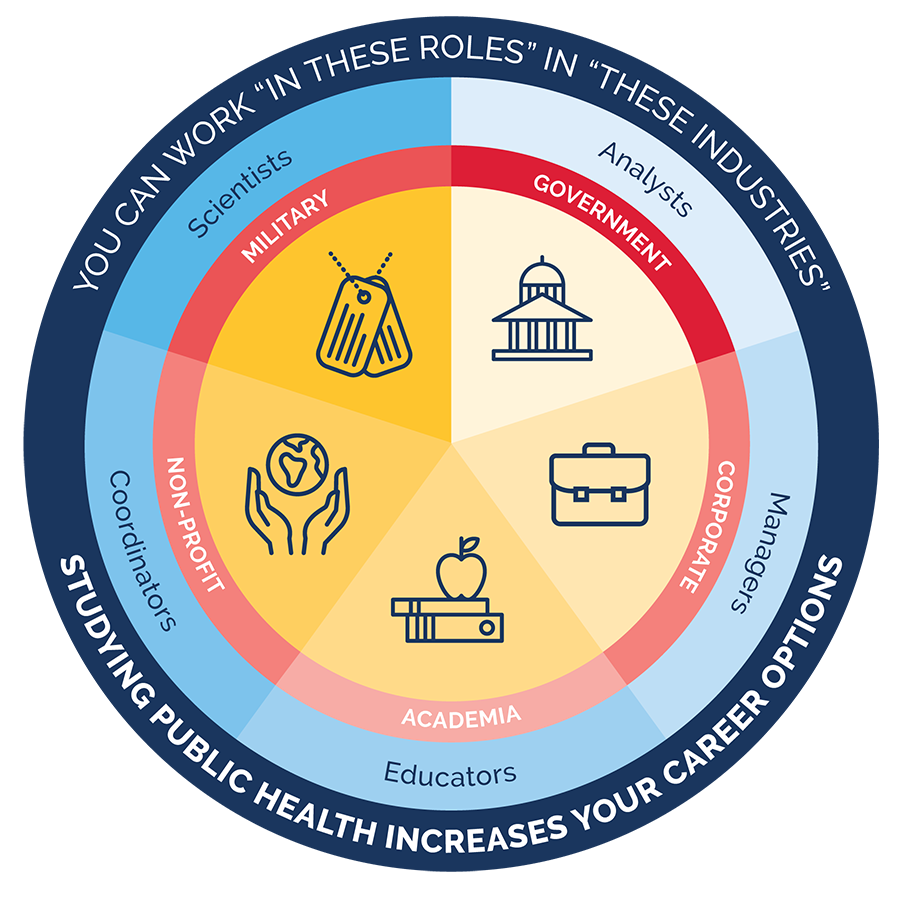Public Health, B.A.
Develop leadership skills to serve your community and promote healthy behaviors and environments.
Become a public health professional who improves your community’s well-being through applied social science, creative thinking, ethical reasoning and communication.
You can land a great job in public health that saves lives and saves money by helping people make healthier choices. Studies show that investing in disease prevention reduces health spending and decreases people’s risk of dying from cancer, diabetes, cardiovascular disease and more. Public health work goes far beyond the doctor’s office and may involve community development work, research, and ensuring access to basic necessities such as clean air, safe drinking water and health services.
At A Glance
Program: Bachelor of Arts
Audience: Undergraduate students
Format: Face-to-face classes
Next Start Date: August 26, 2024
Cost: Full-time tuition
Time to Completion Four years
"I toured a lot of different colleges but could never really picture myself there. But I felt comfortable at Immaculata. I loved the scenery and the atmosphere—it was small enough that I’d be comfortable but big enough to push me to do new things. I felt like I could grow. I learned to say yes to opportunities."
Joe Roberto
Career Outlook
Jobs in public health are growing much faster than the average for all occupations. Demographic factors, such as the aging population, and events, such as the COVID-19 pandemic, have created significant demand for public health administrators and health education specialists.
You can pursue many different career options in a variety of settings, such as the military, academia, corporations, nonprofit organizations or government agencies.
In this interdisciplinary program you will learn to approach health care from a sociological perspective, exploring a range of public health issues such as infectious and chronic diseases, mental health, obesity, gun violence and more. You will study American public policy, human biology and diseases, medical sociology, health psychology, health services, epidemiology, health economics, current public health topics, and public health demographics and research.
Applied Research—You will conduct applied research projects and write a senior thesis. This will benefit your resume and give you an advantage in your post-graduation plans, whether you continue your studies in graduate school or seek employment in public health.
Strong Health Education—Immaculata has a strong reputation in preparing health care leaders, and you will learn from respected experts about health promotion practices, health disparities, social determinants of health and the strengths and weaknesses of health care systems.
Data Analysis—You will also learn to analyze the historical context of public health policies and use historical data to inform your position on current policy issues. You will evaluate the failures and successes of modern public health policies in the context of health trends, including epidemics and the COVID-19 pandemic, and their relevance for future policy decisions.
Internship Experience—All of these skills will be tested in practical settings through one or more internships, with opportunities available with both private and public sector employers.
Just The Facts
0%
Job Growth2021-31 (much faster than average)
$0K
Median SalaryFor health ed & community health workers
